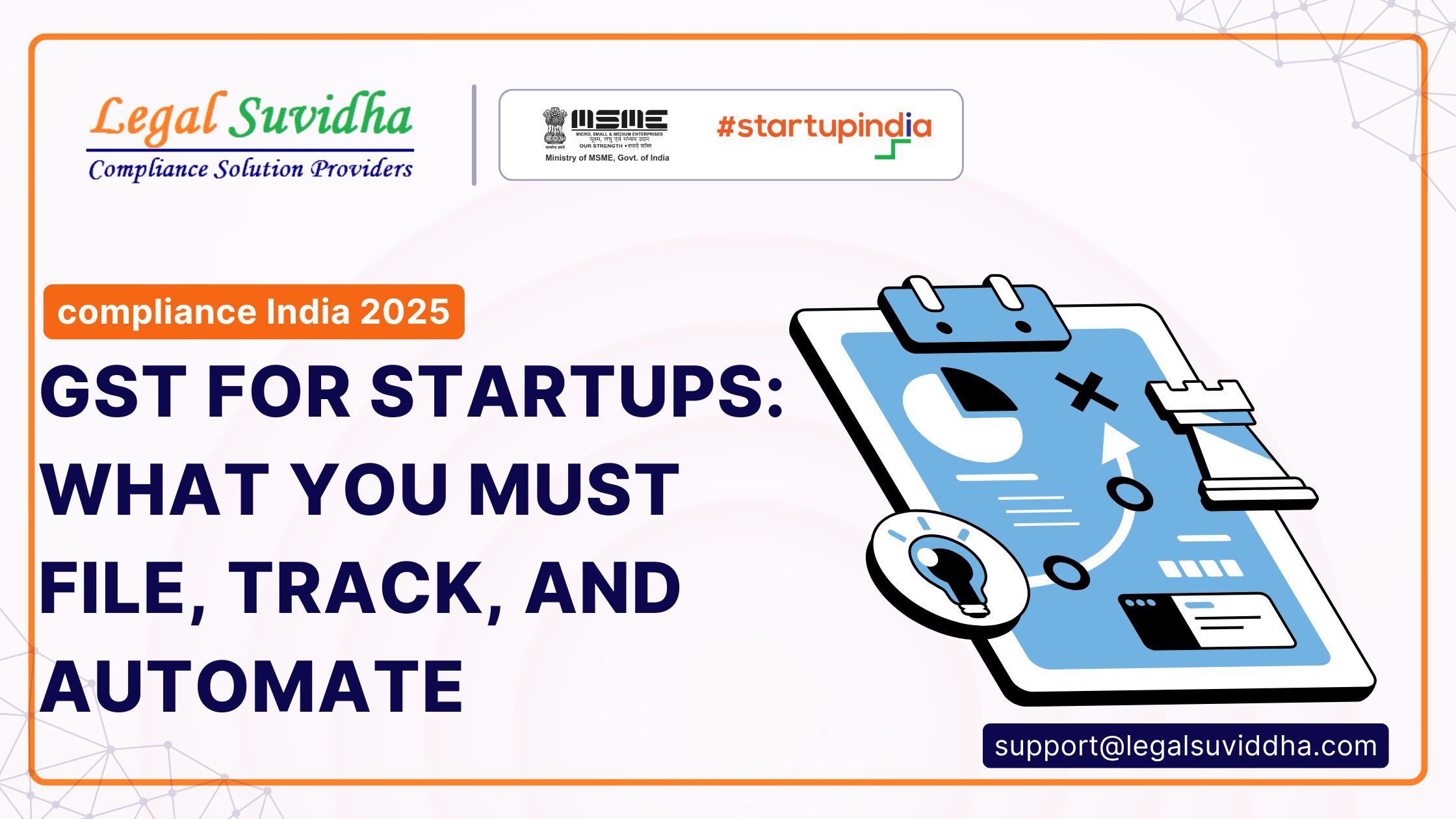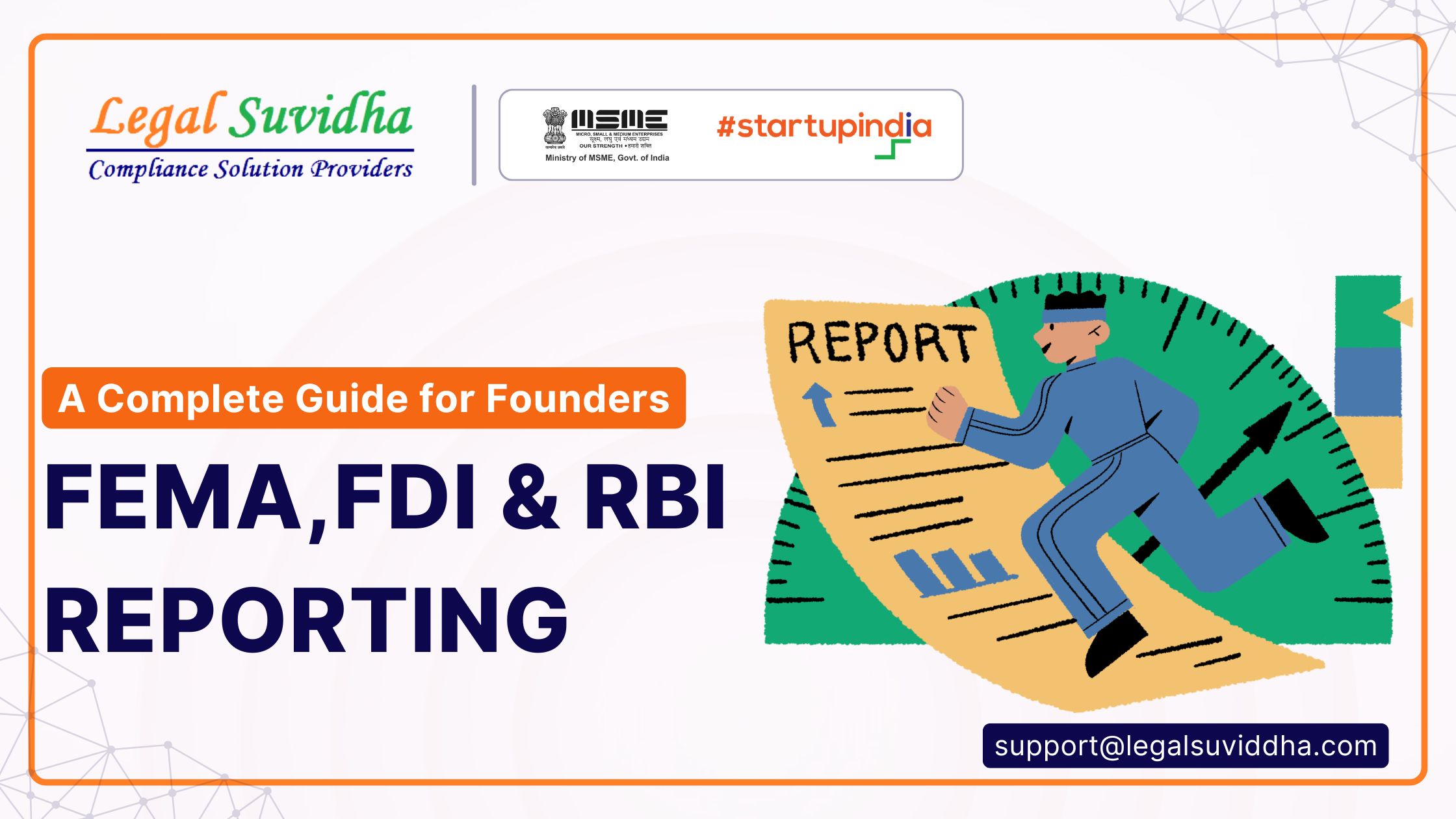The Goods and Services Tax (GST) system in India has changed how businesses deal with taxes. There are many rules like e-invoicing, e-Way Bills, handling invoices, credit and debit notes, tax credits, making tax payments, filing returns, and annual reconciliation. It’s crucial for businesses to understand and handle these aspects of GST compliance. In this guide, we’ll explain the basics of Indian GST compliance and offer practical tips for businesses to manage their operations effectively and stay compliant.
Understanding e-invoicing for GST Compliance
A cornerstone of GST compliance is e-invoicing, which pertains to the process of generating and maintaining electronic invoices in a standardized format that is electronically authenticated by the GST Network (GSTN). The objective of e-invoicing is to automate and streamline the invoicing process, mitigating errors, and augmenting transparency.
Benefits of e-invoicing:
1. Enhanced Accuracy: E-invoicing obviates manual data entry errors, ensuring the precision of invoice details.
2. Expedited Processing: Electronic invoices are faster to handle, which helps save time.
3. Real-time Tracking: Businesses can monitor the status of their invoices in real-time, facilitating improved cash flow management.
4. Streamlined Compliance: E-invoicing guarantees compliance with GST regulations by capturing all relevant invoice details.
5. Enriched Data Analytics: Electronic invoices provide important information that helps businesses understand how they work better.
Implementing e-invoicing effectively involves the following steps:
1. Identify Applicable Turnover Threshold: E-invoicing is mandatory for businesses with an annual aggregate turnover exceeding INR 10 crores. Those with a lower turnover cannot voluntarily opt for e-invoicing.
2. Acquire a Valid GSTIN: Ensure that your business possesses a valid GST Identification Number (GSTIN) registered with the GSTN.
3. Integrate with the Invoice Registration Portal (IRP): Establish a connection between your billing systems or accounting software and the IRP to generate e-invoices in the stipulated format.
4. Generate E-invoices: Generate e-invoices in the prescribed format, encompassing all obligatory fields and information mandated by the GSTN.
5. Authenticate and Submit E-invoices: Authenticate and submit the e-invoices to the IRP for validation and authentication. The IRP will furnish a unique Invoice Reference Number (IRN) and a digitally signed invoice featuring a QR code.
6. Maintain Records of E-invoices: Maintain a comprehensive record of all e-invoices generated, alongside the IRN and other pertinent details, for future reference and audit purposes.
Managing e-Way Bills for GST Compliance
Another important aspect of GST compliance involves the creation and administration of e-Way Bills, which are requisite documents for the transportation of goods valued at more than INR 50,000 from one location to another. These bills encompass details such as the consignment’s value, invoice particulars, transporter information, and the vehicle responsible for transporting the goods.
Benefits of e-Way Bills:
1. Efficient Transportation: e-Way Bills make moving goods easier by replacing paper documents and cutting down on red tape.
2. Enhanced Monitoring: Authorities can monitor the movement of goods in real time, fostering transparency and diminishing the risk of tax evasion.
3. Reduced Paperwork: e-Way Bills eliminate the necessity for physical paperwork, rendering the process more efficient and environmentally friendly.
4. Accelerated Delivery: e-Way Bills speed up the movement of goods, making sure they arrive on time and keeping customers happy.
Efficiently managing e-Way Bills entails the following steps:
1. Register on the e-Way Bill Portal: Enroll your business on the e-Way Bill portal by furnishing the requisite details and securing a unique username and password.
2. Generate e-Way Bills: Create e-Way Bills online by inputting the necessary details, including the invoice number, goods’ value, transporter details, and vehicle registration number.
3. Validate the e-Way Bill: Validate the e-Way Bill by providing the essential information and verifying the entered details.
4. Assign the e-Way Bill to the Transporter: Allocate the e-Way Bill to the transporter responsible for goods transportation.
5. Update the e-Way Bill Status: Keep the e-Way Bill status current on the portal to align with the progress of the goods movement.
6. Maintain Records of e-Way Bills: Maintain an exhaustive record of all e-Way Bills generated, inclusive of the unique e-Way Bill numbers, for future reference and audit purposes.
Efficient Management of Invoices, Credit Notes, and Debit Notes
The proficient management of invoices, credit notes, and debit notes is an integral component of GST compliance. A comprehensive understanding of the requisites and directives governing the issuance and management of these documents is imperative.
Invoices:
An invoice is a document issued by a supplier to a recipient, delineating the particulars of the goods or services rendered, along with the pertinent taxes. Here are some best practices for managing invoices:
1. Ensure Accuracy and Completeness: Include all obligatory details, such as the supplier’s GSTIN, recipient’s GSTIN, invoice number, invoice date, goods or services description, quantity, value, and applicable taxes.
2. Maintain Sequential Numbering: Employ a sequential numbering system for invoices to ensure systematic record-keeping and compliance.
3. Timely Issuance of Invoices: Dispatch invoices within the stipulated time frames to avoid penalties and uphold GST regulatory compliance.
4. Retain Copies of Invoices: Preserve copies of all issued and received invoices for at least six years, facilitating future reference and audit requisites.
Credit Notes:
A credit note is a document furnished by a supplier to rectify errors or make adjustments to the original invoice. Here are key considerations when managing credit notes:
1. Accurate and Comprehensive Information: Include all essential particulars, such as the original invoice number, date, rationale for issuing the credit note, and corrected values.
2. Timely Issuance of Credit Notes: Dispatch credit notes within the prescribed timelines to rectify inaccuracies and ensure accurate accounting.
3. Record-keeping: Maintain duplicates of all credit notes issued and received for effective record-keeping and future reference.
Debit Notes:
A debit note is a document issued by a recipient to a supplier, recording additional charges or adjustments to the original invoice. Here are essential aspects to consider when managing debit notes:
1. Accurate and Comprehensive Information: Encompass all essential details, including the original invoice number, date, reason for issuing the debit note, and the adjusted values.
2. Timely Issuance of Debit Notes: Disseminate debit notes within the designated time frames to accurately record additional charges or adjustments.
3. Record-keeping: Maintain duplicates of all debit notes issued and received for effective record-keeping and future reference.
Correct Input Tax Credit (ITC) and Timely ITC Claims
Input Tax Credit (ITC) constitutes an important element of GST compliance, empowering businesses to offset taxes paid on inputs or input services employed in the production or provision of goods or services. The effective management of ITC and ITC claims is instrumental in reducing tax liability and optimizing cash flow.
Understanding Input Tax Credit (ITC):
1. Eligibility for ITC: To claim ITC, the recipient must possess a valid tax invoice or debit note, and the supplier must have filed GST returns and discharged the owed taxes.
2. Conditions for Claiming ITC: The recipient must utilize the goods or services for business purposes and must have received the goods or services.
3. Blocked Credits: Certain inputs or services do not qualify for ITC, such as motor vehicles, food and beverages, and goods or services intended for personal use.
Ensuring Correct ITC Claims:
To facilitate correct ITC claims, businesses should consider the following strategies:
1. Maintain Proper Documentation: Maintain precise and complete records of all tax invoices, debit notes, and other supporting documents to substantiate ITC claims.
2. Reconcile with Supplier Data: Periodically reconcile purchases with supplier data to detect any disparities and rectify them promptly.
3. Timely Filing of Returns: File GST returns punctually to ensure the supplier’s compliance status remains current, thereby enabling the recipient to claim ITC without hindrance.
4. Regularly Review ITC Claims: Conduct regular reviews to identify any overlooked or under-claimed ITC, rectifying any errors or omissions.
5. Educate Employees: Train employees involved in procurement and accounting on the importance of meticulous documentation and compliance to maximize ITC claims.
Timely Payment of Tax and Return Filing
Punctual tax payments and the filing of GST returns are important aspects of GST compliance. Delays or inaccuracies in tax payments and non-compliance with return filing obligations can result in penalties and legal complications. Here’s how businesses can effectively manage these aspects:
Payment of Tax:
1. Determine the Tax Liability: Calculate the tax liability accurately, based on the applicable rates and the value of goods or services supplied.
2. Timely Payment: Ensure that the tax liability is settled within the stipulated due dates to avoid penalties and interest charges.
3. Choose the Appropriate Payment Mode: Utilize the online payment options offered by the GST portal for a seamless and expeditious payment process.
4. Maintain Records of Tax Payments: Preserve records of all tax payments made, encompassing the payment reference number and date, for future reference and audit purposes.
Return Filing:
1. Understand the Return Filing Requirements: Familiarize yourself with the diverse types of returns and their due dates, contingent upon your business category and turnover.
2. Timely Filing of Returns: Submit GST returns within the prescribed due dates to avoid penalties and legal repercussions.
3. Ensure Accuracy and Completeness: Ascertain that all pertinent details, such as sales, purchases, and input tax credits, are faithfully and comprehensively reported in the returns.
4. Reconciliation and Rectification: Routinely reconcile the data reported in the returns with your accounting records and promptly rectify any disparities.
5. Maintain Records of Filed Returns: Preserve records of all filed returns, alongside the acknowledgment numbers and dates, for future reference and audit purposes.
Annual Return and Reconciliation
In addition to regular return filing, businesses are obligated to file an annual return and reconcile their GST data with their financial statements. This annual compliance endeavor aids in guaranteeing the precision and completeness of GST data. Here’s how businesses can proficiently manage the annual return and reconciliation process:
Annual Return Filing:
1. Understand the Annual Return Format: Familiarize yourself with the format and requisites of the annual return, encompassing the GSTR-9 form for regular taxpayers and the GSTR-9C form for taxpayers with an annual turnover exceeding INR 5 crores.
2. Compile the Necessary Information: Collate all requisite information, such as sales, purchases, input tax credits, and other financial data, to accurately complete the annual return.
3. Reconcile with Financial Statements: Compare the data reported in the annual return with your financial statements to ensure congruence and precision.
4. Timely Filing: File the annual return within the stipulated due date to evade penalties and legal repercussions.
5. Maintain Records of Filed Returns: Maintain records of all filed annual returns, along with the acknowledgment numbers and dates, for future reference and audit requisites.
Reconciliation of GST Data:
1. Reconcile Sales and Purchases: Align the sales and purchases reported in your GST returns with the corresponding data in your accounting records to detect any disparities.
2. Rectify Discrepancies: In the event that disparities are identified during the reconciliation process, rectify them promptly and update the data in your GST returns.
3. Maintain Reconciliation Statements: Maintain records of the reconciliation statements prepared, alongside the supporting documents, for future reference and audit requisites.
Conclusion
Managing Indian GST compliance is crucial for businesses to follow the law, avoid fines, and run smoothly. To do this, businesses need to understand and follow various aspects of GST compliance like e-invoicing, e-Way Bills, handling invoices, credit and debit notes, claiming tax credits, making tax payments, filing returns, and annual reconciliation. Staying updated on the latest rules, getting expert help when needed, and keeping accurate records are essential to navigate GST compliance successfully.
If You have any queries then connect with us at [email protected] or [email protected] & Contact us & stay updated with our latest blogs & articles








